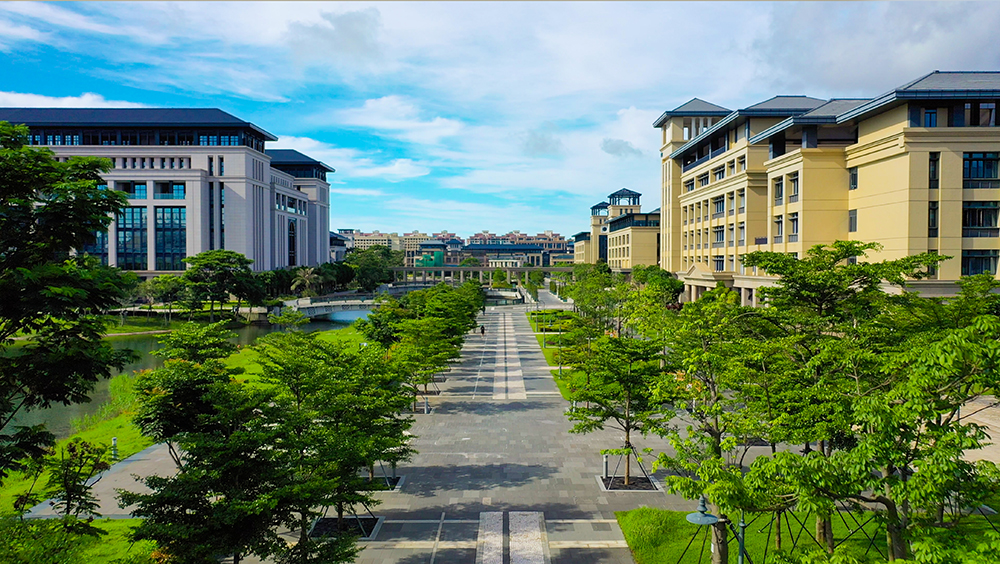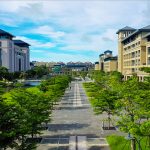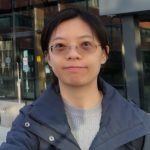 The UM Macao Fellow Programme has successfully nurtured 11 local young scholars
The UM Macao Fellow Programme has successfully nurtured 11 local young scholars
The University of Macao (UM) launched the UM Macao Fellow Programme in 2015, in order to attract outstanding local talent to develop their careers in Macao. Over the past six years since the launch of the programme, a total of 25 outstanding young scholars from Macao who graduated from renowned universities in China and abroad have become UM Macao Fellows through a rigorous selection process, and 11 of them have been recruited to the rank of assistant professor.
These 11 scholars are Un Ka Fai and Lei Ka Meng in the Institute of Microelectronics; Ieong Meng U in the Department of Government and Public Administration, Faculty of Social Sciences (FSS); Valentino Anok Melo Cristino in the Department of Electromechanical Engineering, Faculty of Science and Technology (FST), Cheang Wai San and Ung Oi Lam in the Institute of Chinese Medical Sciences; Li Shaozhi in the Department of Finance and Business Economics, Faculty of Business Administration; Lam Mei Mei in the Department of Economics, FSS; Lao Keng Weng and Kuok Sin Chi in the State Key Laboratory of Internet of Things for Smart City; and Lo In Fat in the Department of Chinese Language and Literature, Faculty of Arts and Humanities.
Lei Ka Meng in the Institute of Microelectronics was among the first cohort to graduate from UM’s Honours College. After completing his PhD, he was appointed as a UM Macao Fellow in 2016 for his outstanding research achievements. Later, he was invited by Harvard University to serve as a postdoctoral visiting scholar for two years, focusing on nuclear magnetic resonance platforms. ‘I hope that with the support of the university, I can continue to contribute to Macao and the university through commercialisation of more research results,’ he says. He is confident that with abundant resources, UM will be able to nurture more local research talent in the future.
Kuok Sin Chi is a faculty member in the State Key Laboratory of Internet of Things for Smart City and the Department of Civil Engineering, FST. Kuok was appointed as a UM Macao Fellow in 2018. She was also invited by the University of Oxford and the University of Cambridge to serve as a visiting scholar for two years. Kuok’s research focuses on the analysis of cyber-physical systems at data centres using Bayesian frameworks. She says, ‘The human brain is actually doing a similar analysis, using various senses to collect information (data), and through thinking (Bayesian frameworks), it recognises the mechanism of things in the world (cyber-physical systems) and predicts the development of things.’ Her research mainly revolves around analysing the engineering problems of cyber-physical systems through a series of algorithms such as probabilistic inference, data processing, and machine learning. The UM Macao Fellow Programme has enabled Kuok to establish long-term collaborative projects with top research teams at the University of Oxford and the University of Cambridge, creating further opportunities for her research team at UM. She hopes to continue to improve, to complement the strengths of her research team, to produce excellent research results, and to pass on her knowledge to the next generation, in order to repay the university's years of training.
The UM Macao Fellow Programme is a three-year programme. During the three-year period, UM Macao Fellows can take up visiting positions at renowned overseas universities or institutions to increase their teaching and research experience, expand their international horizons, and enrich their professional knowledge. In addition, UM's senior academic staff will provide timely advice and guidance to these young scholars on how to successfully set up research projects, conduct research, publish their finding, and become professional teaching staff. If they pass the assessment, they will have the opportunity to become assistant professors at the university through open recruitment.




